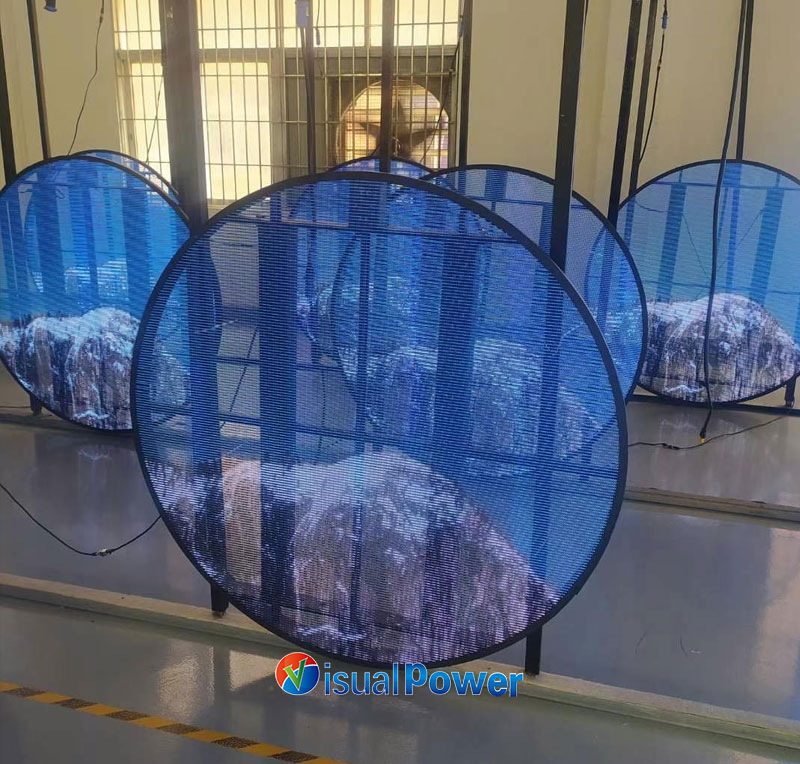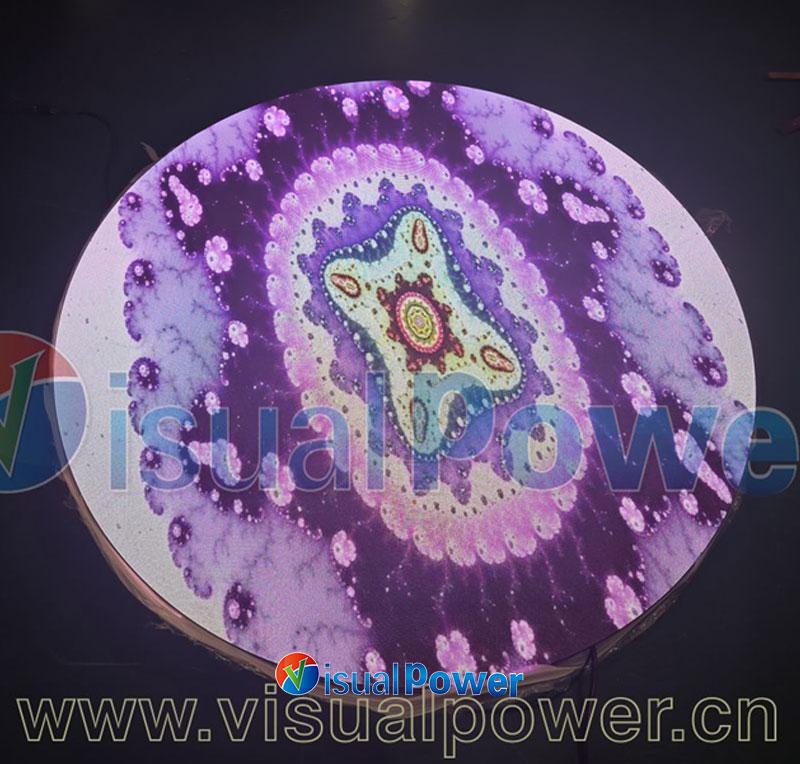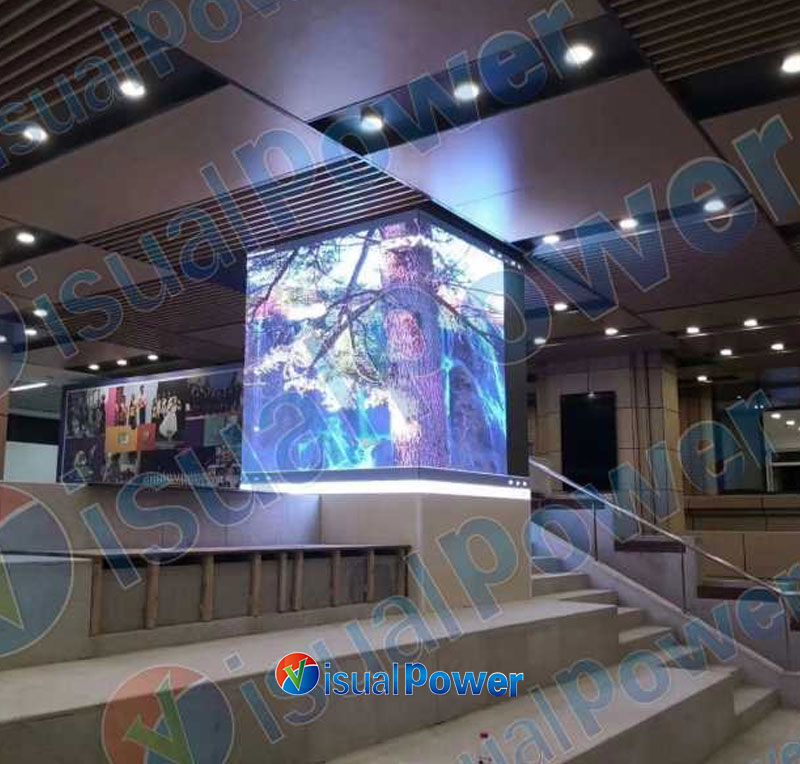categorías
- Noticias (83)
- caso de estudio (6)
Una vez cuando trabaja en un espacio de exhibición temporal en Shanghai, Me paré en un pasaje formado por pantallas LED de forma irregular, casi completamente inmerso en el contenido. Las imágenes ya no estaban en una pantalla o en una pared, pero fluyó simultáneamente desde el techo, fachadas, and even the ground. I remember that moment very clearly because it felt like I had literally walked into the information.
Al final, I have always been fascinated by how we deliver and experience information. It’s not merely a show of technical prowess, but rather how it truly changes the way we perceive.
Among all the new forms of media I have come into contact with, pantalla LED creativa is the one that has touched me the most. It not only changes the way of “seeing”, but also subverts the grammar of “how to say”.

The traditional screen is basically a “ventana”: the audience stands outside and the screen is inside. We are accustomed to this one-dimensional communication logic. But creative LED display has completely changed this.
I once participated in the atrium installation project of a shopping mall. The owner’s requirement is: “It should be young, talkative, but not too expensive.” Frankly speaking, this is a typical proposition of “wanting the horse to run while also wanting it not to eat grass”. Pero al final, Utilizamos un sistema de pantalla LED personalizado que combina arcos y facetas, convertir todo el dispositivo de visualización en un espacio de información que pueda ser “ingresado”.
La gente camina a esa área como si estuvieran entrando en una escultura que está hablando. Las imágenes cambian automáticamente en función de dónde está parado una persona y en el ángulo que está viendo. Cuando un niño está saltando, la imagen entrará en un ritmo de “detalles de lupa + brillante”. Cuando el anciano se detuvo, the scene slowly transitioned to a smooth display of information with text.
This installation blew up on social media, and what I remember is a sentence said by a passing grandma who stopped with her little granddaughter: “Wow, this ‘wall’ seems to be telling a story.”
I think that’s probably the most charming aspect of the creative LED display: It’s no longer about “what you see”, pero “you are in it”.
Para ser sincero, whenever others mention “creative LED screens”, they often think it just means “weird-looking shapes”. This is actually a very superficial understanding.
The real challenge lies in how to maintain the stability of the system and the effectiveness of information transmission under an irregular structure. Por ejemplo, the irregular cutting of modules, the torsional strength of the structure, the prediction of viewing angle occlusion, the concealment of the wiring system, heat dissipation design, and later maintenance… Every step is a balancing act between tech and aesthetics.
I’m not from a technical background, but one thing I particularly rely on in our collaboration is visualpower’s ability to “think from a systems perspective”. They will not merely focus on modules but will provide solutions in parallel from three layers: structure, content, and control system. The approach of sorting out technical logic and spatial language together made me realize that true creativity never relies on ideas but on systems.
Just like when we built a circular LED dome in the exhibition hall that time, it was necessary to reserve the structural load-bearing distribution points, signal synchronization nodes and emergency inspection openings in the early planning stage. This is not something that can be solved by any “show-off design”, but rather the behind-the-scenes teamwork and planning that goes into making the whole system work.

Have you ever wondered why more and more exhibition halls are no longer just “hanging display boards” o “putting up TV screens”? Because people aren’t just looking at information anymore — they’re moving through it.
This is also the process in which I gradually changed my perception: LED is not merely a terminal for content output; it has actually become a part of the narrative.
When I was doing content planning for a technology brand exhibition hall, I adopted an unconventional approach — we hung two symmetrical irregular-shaped LED walls diagonally on both sides of the central axis of a double-story staircase, running through the entire visual passage from top to bottom. The picture shows the timeline of the brand’s development from 0 a 1, but it gradually unfolds as the audience “goes upstairs”.
This section has no narration or text. It only features minimalist animations and flowing graphics, yet its rhythm is in sync with the audience’s steps. Climbing those stairs felt like walking through the brand’s history.
This is more memorable than any standard 16:9 pantalla.
When LED technology became increasingly mature and resolution, flexible structure, controllability and energy consumption were no longer obstacles, I started seeing creative LED displays as a kind of visual language for space.
It is not decoration but a visual symbol system that can be organized, written and even “read”.
Por ejemplo, recently I saw that a library has set up a low, surrounding LED reading space in the children’s area. The picture will dynamically change the surrounding environment along with the changes in the content of the picture book. Children are no longer sitting and reading books; en cambio, they have “stepped into the books”.
You say it’s technology? sí. But it is also architectural language, a medium of content and a trigger for human behavior.

I have never believed that the future of creative LEDs lies in “looking cooler”, but in how it creates a more realistic “sense of presence”.
It should help people rethink “the relationship between me and information”. It’s not a condescending instruction, but an equal dialogue.
Entonces, rather than being a device, I prefer to view creative LED display as a “verb in space” — it brings about a new action, a new way of connection, and a kind of experience we don’t even have the right words for yet.
And I’m still on the road, tratando de usarlo para contar más historias que son “no solo por mirar”.